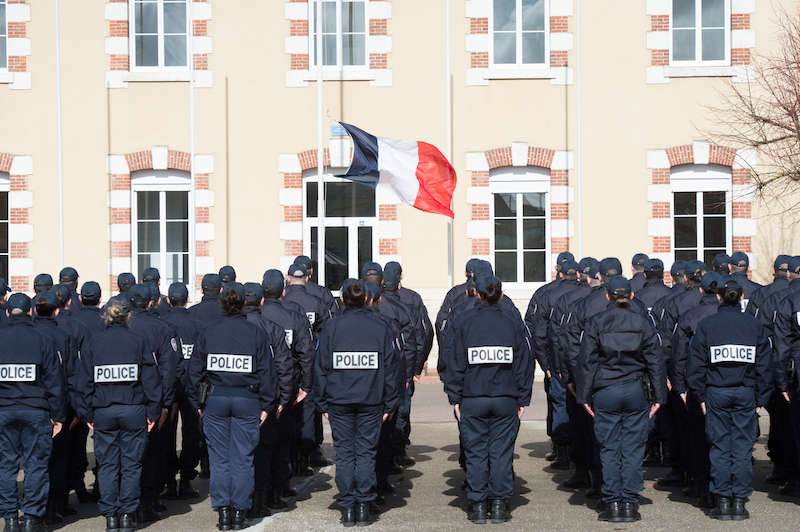LCCT II - Support project to combat terrorism in Tunisia
Tunisia has suffered two major terrorist attacks since the Jasmine revolution in January 2011. The one in Bardo in March 2015 killed 22 people while the second in Port El Kantaoui in June 2015 cost 38 tourists their lives.
Tunisia’s geographic position heightens the threat as it is exposed to terrorists from Algeria and Libya where there are significant Jihadist movements.
However, within the country radicalisation of the population is something that the Tunisian security forces are trying to bring under control. The 29 October 2018 kamikaze terrorist attack on Avenue Bourguiba in the centre of Tunis, carried out by a young woman who had been radicalised in just a few weeks, shows the magnitude of the threat.
Return to security is therefore a top priority for the Tunisian authorities.
Within the framework of this project, CIVIPOL will lend its assistance to four Tunisian entities:
- The security hub for the fight against organised crime and terrorism security (PS – Pôle sécuritaire), a Ministry of the Interior body. The security hub coordinates information, strategic analysis and the circulation to the authorities of a monthly State report on the terrorist threat. Its mission is to gather, process and analyse all the information relating to terrorism and organised crime from several Tunisian ministries.
- The judicial hub for the fight against organised crime and terrorism (PJ – Pôle judiciaire) is in charge of dossiers linked to terrorism matters. The judicial hub is the Tunisian authorities’ anti-terrorist public prosecutor’s department and is attached to the Ministry of Justice. It is made up of representatives of the public prosecutor’s office, examining magistrates, criminal judges for the courts of first instance and appeal judges.
- The Tunisian National Guard (GNT – Garde Nationale Tunisienne), key actor in the Tunisian security apparatus. A robust force present across the country which is in a position to significantly contribute to the efforts deployed in Tunisia to guarantee the country’s stability in the face of the terrorist risk.
- Prisons and Rehabilitation Department (DGPR – Direction Générale des Prisons et de la Rééducation). Created in 1971 this institution is part of the Ministry of Justice and is charged with enforcing the prison and rehabilitation policy, ensuring the security of prisons and rehabilitation centres and helping sentence enforcement judges enforce prison sentences.
This project is part of the EU’s global strategy on security.
The EU's global strategy on security approved in June 2016 identified terorism as one of the major threats to the EU. Conclusions from European Council meetings on 9 February 2015 and more recently 19 June 2017 emphasised the importance of strengthening consistency between internal and external measures to combat terrorism. This project therefore responds to the Tunisian security challenges and recommendations formulated by the EU on counter-terrorism.
An ambitious project for a duration of three years.
The action we propose is based on the solid experience acquired during the first phase of the LCCT project (2016-2018) and on the cumulative experience of various projects that we have implemented in the region. The project will therefore aim to strengthen the Tunisian authorities’ capacities in the fight against terrorism and contribute to preventing extreme violence.
CIVIPOL, a partner of choice for the Tunisian authorities and the European Union.
Following the three years, we would like to have achieved the following aims:
- Strengthen the security hub’s competences in the area of information analysis and threat assessment;
- Perfect investigation techniques for officers of the judicial police and judges;
- Build the Tunisian National Guard’s operational capacity;
- Improve DGPR provisions for the management of prisoners incarcerated for terrorism-related charges.
The acquisition of materials is also planned in the framework of this project.
Following two months of activities some significant missions have been undertaken including:
- Participation of the Tunisian Ministry of the Interior in EUROPOL’s annual conference in The Hague in April 2019.
- Two mission in Tunis were led by the DGPR with a view to designing a training of trainers programme for prison directors.
The project in figures
€2m
Total grand budget
2800
Man-days to be allocated:
4 target publics
Ministry of the interior, ministry of jusctice, gnt, dgpr
Chronology
The project will last 36 months.
-
01 April 2019
Start of the project
-
31 March 2022
Fin de projet

About the project
Person in charge of steering
LAMOUR Cavida
Project status
Finished
Funding type
European Union
Contract type